Chess Club Benefits: 5 Reasons & How To Join A Chess Club
Chess is one of the most popular games in the world and one of the most popular things to do to promote social interaction and bring people together. It’s only natural that before you start asking how to join a chess club, you first want to know the benefits of joining one.
Everyone has different skills and ability levels so having a game that is based on different skill levels keeps the game fresh. A game like chess can be played with any level of experience because there are many variations. It's more than just picking up pieces and putting them together.

5 Chess Club Benefits
You can join a chess club that has chess sets, chess boards, board games, and more to play and learn from. Here are five chess club benefits:
1. It’s a game that challenges your mind
When you play this game of strategy, it challenges your mind and helps you get better at it. The possibilities are endless and with each passing year, the game and the rules are being tweaked and improved. If you're new to the game or you don't know how to play it, learning how to play the game in a social setting makes the game more interesting.
2. It’s a fun way to learn with others
You may feel more confident when you're playing when you have a small group of friends around. You can have a little friendly competition, or you can simply just play the game to have fun together. It's a great way to share hobbies and a great way to bond with others. Chess sets range in different styles so you can find something that appeals to you or something that will fit right in with your decor. Many people buy a chess set for their homes or even use it as their living room set. Whatever the case, the set comes with a chess board, a bunch of chess pieces, and it's fun to play.
3. It can be creative with themed chess sets
There are different chess sets that you can choose from depending on what you want and the age of your child. There are themed sets and kits that range from medieval times, history, and royal games to ancient Greek and Egyptian history. There are also many fantasy sets and kits that feature knights, castles, and dragons. For fun and learning purposes the sets come with everything you need to play and the games are challenging and fun. Some sets include special chess pieces that help teach kids about history, science, and other subjects. By learning with the pieces and seeing them working they help to develop their thinking and their reasoning skills.
4. It can develop your analytical skills
Own a chess combination and learn the art of the game, chess is a great way to begin to develop skills. Kids love to be able to count and see the numbers on the chessboard and all the different pieces make counting easy and fun. When you're playing a game of chess, you get to use your brain and your memory. Counting and memorising numbers is a lot easier when you're involved in a game. Some kids are even making lots of boards at school to bring home for them to play and enjoy. And because they love the game they are working hard at learning how to count and how to compare numbers. It's a fun way to learn maths skills and develop reasoning skills.
5. It’s a great way to meet new people
Having a social environment is a great way to meet new people and develop friendships. There is no better way to learn about different cultures and how to interact with them. You can get to know other people that are interested in the same hobbies and interests as you. The players and the boards are there to challenge and the rules are there to make it a very social game. When you play a game with friends, it's about having fun and being comfortable with yourself and others. If you feel awkward or self-conscious in a group setting then the game will challenge your ability to face the world and get used to the social interaction. When you find a group of people that you enjoy being with you find that it becomes easier to meet people that you haven't met before.

How To Join A Chess Club
Playing a social game has many benefits. Chess sets allow you to meet people and make new friends and socialise and go out to dinner, watch movies, and play board games. Whether you're meeting a group of friends or an entire group of people who enjoy the same things, you'll enjoy it.
To join a chess club near you, start your search on Facebook or Google to find the date, times, and location. Reach out to the organisers if you need more information. The chess community is very friendly!
Chess is undeniably one of the most popular and intellectually stimulating games in the world. Whether you're a seasoned player or just starting, the idea of joining a chess club can be both exciting and rewarding. However, before diving into the world of chess clubs, it's essential to understand the numerous benefits they offer and how you can become a part of this vibrant community.
Chess Club Benefits
-
Mental Challenge: Chess is often referred to as a game of strategy. It's not just about moving pieces; it's about developing tactics and outsmarting your opponent. Joining a chess club provides you with a continuous mental challenge, keeping your mind sharp and agile. The possibilities in chess are virtually endless, and as the game evolves over the years, so do the strategies and tactics, making it an ongoing intellectual pursuit.
-
Learning in a Social Setting: Learning to play chess in a social setting can be far more engaging and enjoyable than trying to figure it out on your own. Chess clubs create an environment where you can learn and improve your skills alongside others. Whether you're a beginner or a seasoned player, the camaraderie and shared enthusiasm in a chess club can be a significant motivator to enhance your game.
-
Diverse Chess Sets: Chess sets come in a myriad of styles and themes. This variety allows you to choose a set that aligns with your interests or even complements your home decor. From medieval-themed sets to those featuring elements of history, royal games, ancient civilizations like Greek and Egyptian, or even fantasy sets with knights and dragons, there's a chess set for every taste. Playing with themed sets adds a layer of creativity and engagement to the game.
-
Development of Analytical Skills: Chess is a game that not only challenges your strategic thinking but also develops your analytical skills. Counting, memorizing, and strategizing are integral to chess. It's a fun and interactive way for kids to learn counting, as the pieces and squares on the chessboard make numbers more accessible and enjoyable to grasp. As players progress, they strengthen their memory and analytical capabilities.
-
Social Interaction and Friendship: Chess clubs provide an excellent platform for meeting new people and forming lasting friendships. Engaging in a social environment allows you to interact with individuals from diverse backgrounds and cultures who share a common interest in chess. Playing chess with friends is not just about competition; it's also about enjoying the company of others and getting comfortable with social interaction. It can be a confidence booster, particularly if you're initially self-conscious in group settings.
How to Join a Chess Club
Joining a chess club is a straightforward process, and it can be immensely rewarding. Here's a step-by-step guide to help you get started:
-
Search Online: Begin your search for a chess club in your area by using search engines like Google or social media platforms like Facebook. You can look for local chess clubs, chess meetups, or chess events. These platforms often provide details about the club's meeting times, locations, and contact information.
-
Contact the Organizers: Once you find a chess club that interests you, reach out to the organizers or club members. They are usually more than happy to provide additional information and help you get started. Feel free to ask about the club's schedule, skill levels, and any membership requirements.
-
Visit a Meeting: Attending a meeting as a guest is an excellent way to gauge the club's atmosphere and whether it aligns with your preferences. You can meet the members, witness the games, and get a feel for the social dynamics. It's also an opportunity to see if the skill levels and playing style match your own.
-
Membership: If you're comfortable with the club's environment and feel that it's the right fit for you, inquire about membership options and fees. Many chess clubs offer a variety of membership levels, including options for casual players and competitive enthusiasts.
-
Participate and Enjoy: Once you become a member, participate in club activities, join chess tournaments, and make the most of the social interactions the club offers. Chess clubs often organize various events, from friendly matches to competitive tournaments, so you'll have plenty of opportunities to enjoy the game and build lasting friendships.



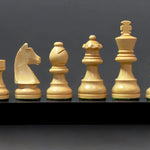
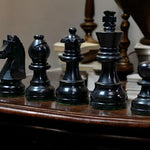
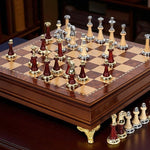
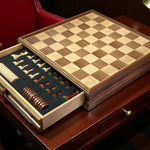
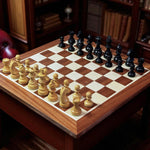


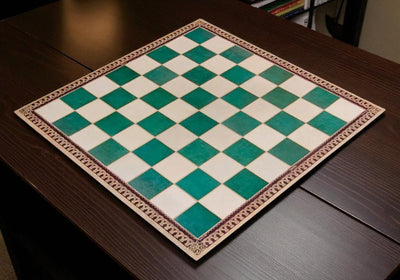
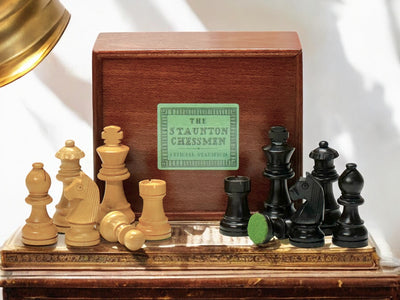
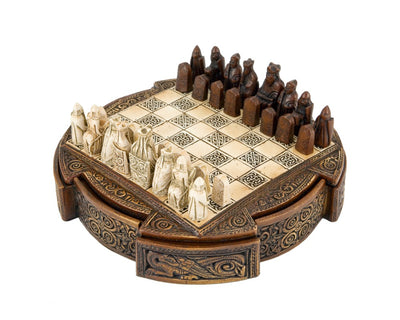
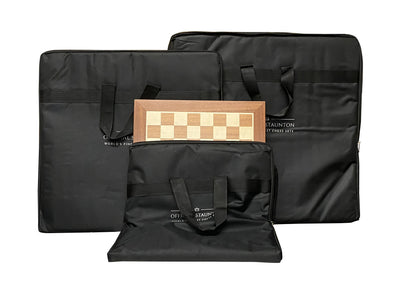
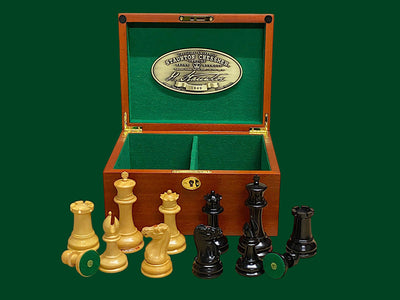
Leave a comment